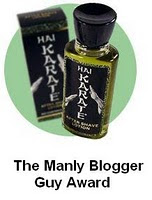Title: Away All Boats
Released: 1956
Genre: War at sea
Notable for: Eastwood's last appearance as a studio contract actor
Clint's subliminal message: "Go ahead and fire me because I will make you regret it."
The most amazing thing about the World War II epic "Away All Boats" is it should have been the end of Clint Eastwood's movie career. He should have left Hollywood as an unknown who almost made it in the movies. Then he should have gotten a job in a cement factory, or something of that sort, and spent the rest of his life bragging to people in the local tavern that he appeared in seven movies for a total of about four minutes.
"Hell, yes!" Clint would say at his usual stool at the end of the bar. "I worked with Rock Hudson, Donald O'Connor, John Agar, Richard Boone, George Nader, all the big names. Mamie Van Doren? I did her."

"Away All Boats" was the last film Clint made in 18 months as a low-paid contract actor for Universal Studios. Clint knew Universal did not intended to renew his contract.
His career clearly appeared headed nowhere in those first seven films for Universal. Only once did he play what might be called a character. The rest of the time he had insignificant roles easy to miss unless you watch closely for him.
One of his smallest roles was his last under contract with Universal.
"Away All Boats" is an entertaining but muddled World War II movie. It was billed as a true story but the Navy ship where it is set is fictional. But the really muddling part is the way the ship's captain is presented. For most of the movie, the captain is unreasonable, strange and unyielding. One outstanding moment of unintentional humor comes when the captain must be told the enemy killed "Chip Chee," a pet monkey he picked up to ease the loneliness of command. Then, at the end of the movie, the captain's strangeness is magically transformed into heroism. Whatever.
Clint plays an uncredited role as a medic. He is onscreen for five seconds to deliver one line: "Dr. Bell's waiting for him in surgery, sir."
After the movie was shot, but before it was released, Universal dumped Eastwood's contract effective Oct. 25, 1955.
Ninety-nine percent of us, in that circumstance, would give ourselves credit for trying. We would try not to feel humiliated but we would give up. Judging by film output alone, Eastwood's 18-month movie career was a failure. The studio lost interest in his talents and no evidence existed to suggest he had a future.
But Eastwood did not go looking for work at a cement plant. Trusting knowledge he gained and connections he made in those 18 months at Universal, Clint stuck around Hollywood and kept trying to scrape up roles. Three hard and discouraging years were ahead.
Grim determination is a defining trait of many of Eastwood's classic characters. His film message, over and over, is a real man does not give up when things go bad. He grits his teeth and kicks ass.
Give the dude credit. He gave a good example of how that can work in real life, too.
Next up: "The First Traveling Saleslady."







